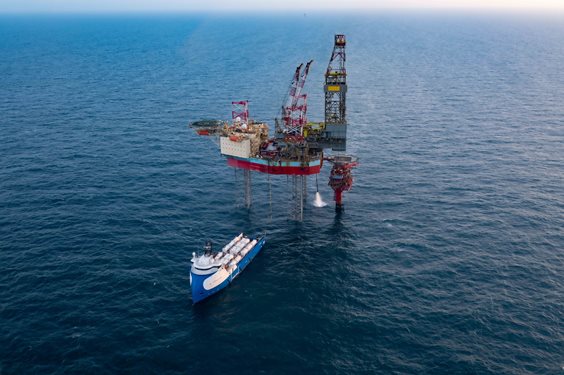Koldioxidlagring i Sverige – är det möjligt? Rapport från Smygehamn och Riksriggen

Sedan 2014 är det tillåtet med geologisk lagring av koldioxid i Sverige. Lagring får som huvudregel endast ske under havsbotten i Sveriges s.k. ekonomiska zon. I Sverige består större delen av vår berggrund av kristallina bergarter såsom gnejs och granit, bergarter som inte lämpar sig för koldioxidlagring. Lämpliga sedimentära bergarter finns bara i begränsade delar av […]
UK: Nearly £22bn pledged for carbon capture projects

The UK government has pledged nearly £22bn for projects to capture and store carbon emissions from energy, industry and hydrogen production. (BBC.com) It said the funding for two ”carbon capture clusters” on Merseyside and Teesside, promised over the next 25 years, would create thousands of jobs, attract private investment and help the UK meet climate […]
Budgetpropositionen för 2025: Befrielse från energiskatt på el för CCS bör inte genomföras

Den 19 september 2024 lämnade regeringen budgetpropositionen för 2025 till riksdagen. Budgetpropositionen innehåller regeringens förslag till statens budget för 2025 samt de övriga förslag och bedömningar som följer av riksdagsordningen och budgetlagen. Här citerar vi texten om förslaget på befrielse från energiskatt på el för CCS ur regeringens proposition 2024/25:1, sid. 351, 12.20: Befrielse från […]
Northern Lights: World’s first cross-border CO2 transport and storage facility is officially open

Northern Lights CO2 transport and storage facility, a joint venture (JV) of energy majors Shell, Equinor, and TotalEnergies, has been completed, marking “an important milestone for the global development of a business model for carbon capture, transport, and storage”.
Koldioxidlagring under havsbotten – nytt projekt invigs idag

Idag invigs en anläggning i ett norskt projekt med målet att lagra koldioxid under Nordsjöns havsbotten istället för att utsläppen går ut i atmosfären. >> Lyssna på inslaget på Sveriges Radio
SBTi revising its guidance on carbon removal

The Science Based Targets initiative (SBTi) is in the process of updating its flagship Net-Zero Standard and has released revised terms of reference indicating there will be a new approach to carbon removal. One of the key areas of focus is refining the strategy around carbon removal, or what the organization refers to as “neutralization” in its […]
Standard Chartered Bank and SEB Partner with Puro.earth to Unlock Liquidity in the CDR Market

Standard Chartered Bank and SEB Partner with Puro.earth to Unlock Liquidity in theCarbon Dioxide Removal Market and Drive CORC Production for Corporate Net-Zero Goals. Leading financial institutions Standard Chartered Bank and SEB, both long-standing supporters of the Puro.earth carbon removal ecosystem, are excited to announce an expanded partnership with Puro.earth. This collaboration aims to increase […]
Equinor and Ørsted make carbon removal agreement

In a new agreement, Ørsted will sell carbon dioxide removal (CDR) credits amounting to 330,000 tonnes of CO2 to Equinor over a ten-year period. This is part of Ørsted’s CO2 capture and storage project, ’Ørsted Kalundborg CO2 Hub’, which will capture 430,000 tonnes of biogenic CO2 annually from two of Ørsted’s biomass-fired CHP plants from 2026. The CO2 that is […]
Denmark’s first CO2 storage facility is now ready to receive large amounts of CO2

Denmark has a safe and well-functioning storage for CO2 in the North Sea subsoil, where CO2 can be permanently stored to mitigate climate change. INEOS press release The 23 partners behind Project Greensand have now submitted the final report from the pilot project, which has aimed to develop, test and demonstrate safe and efficient storage […]
Lovande resultat när världsledande CCS-forskning testat teknik hos Sysav

Sedan april förra året har en banbrytande pilotanläggning för koldioxidavskiljning (CCS) testats vid Sysavs kraftvärmeverk i Malmö. Det är första gången tekniken testats i stor skala på rökgaser från avfallsförbränning, och resultaten är både lovande och lärorika. Traditionella metoder för koldioxidinfångning kräver mycket el och värme, men det världsledande forskarteamet från Lunds universitet har utvecklat […]
